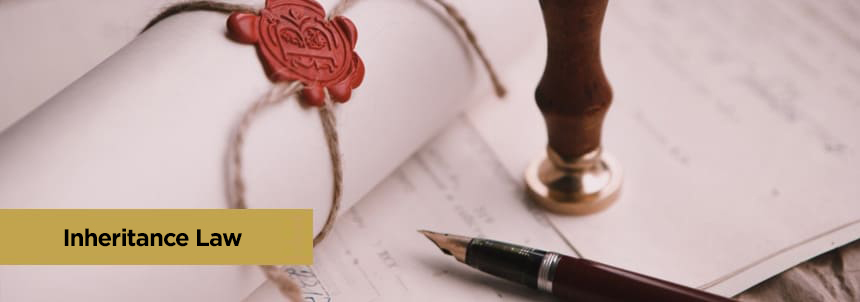
Inheritance law refers to the branch of law regulating to whom and how the entirety of assets is inherited in case of death or absence of a natural person.
In Turkish jurisprudence, persons to take a share from inheritance are determined according to the parental system. These are;
In Turkish law, the legator is prevented from assigning due to disposition by will or testamentary disposition. Some relatives of the legator have a reserved portion on inheritence.
Inheritors with reserved portion are the spouses and children, grandchildren, mother and father of the inheritor. Descendant children and grandchildren receive ½ and the mother and father receive ¼ of the legal inheritance and the reserved portion of the surviving spouse and ¾ in case of inheritance with the mother-father or descendants and the entire thereof in other cases. Siblings of the inheritor do not hold any reserved portion according to the current regulations.
Legators may debar inheritors with reserved portion from inheritance in case of misconduct thereof specified in the law.
Inheritors with reserved portion may be debarred from the inheritance in case of a gross misconduct towards the legator or relatives or failure to perform legal obligations towards family members.
In case of debarment of inheritors with reserved portion from inheritence, neither may they take a share from inheritance nor file an lawsuit for reduction. The share of debarred inheritors with reserved portion is reverted to the descendant (children-grandchildren), if any. If not, it is distributed to other inheritors equally. Unless the reason for debarment is explicitly explained, the transaction is nullified.
Inheritors may not want the inheritence in case of animosity with the legator or the assets of the legator being in deep debt. In such cases, the legal or assigned inheritors have the right to disclaim the inheritence.
Inheritors may disclaim the inheritence within 3 months after they are notified about the death of the legator. The declaration of disclaimer of inheritence is made to the judicature of peace. Otherwise, it is declared null and void.
If the assets of the legator are in debt, it is automatically deemed disclaimed without the need for the declaration of intention by the inheritors.
In the event that all of the closest inheritors disclaim the inheritence, the civil judicature of peace liquidates the inheritence as per bankruptcy provisions. Surplus assets are distributed to inheritors, if any.
Wills are three type; oral, hand-written and official.
Oral Will: may be made under extraordinary conditions. For this, the legator must make an oral will to two witnesses. Oral will is turned into writing by these witnesses and submitted to the civil judicature of peace. Witnesses must be literate.
Hand-written Will: is the will hand-written by the legator. Even though it is not mandatory to submit it to the court, it is obliged to be hand-written and dated in writing. Absence of any of such two conditions nullifies the will.
Official Will: is made in two ways depending on whether the legator is literate or not. If literate, the official will prepared is submitted to the notary or civil judicature of peace and approval is obtained. Once after the approval, the will is read before two witnesses and becomes effective with the signature of the witnesses.
If illiterate, the request is notified to the will registrar. The registrar prepares a will in this line and it is read to the legator before the witnesses. Once the legator is approved, the registrar and witnesses sign and the will becomes effective.
Our law office;
all of which result from employer-employee relation, are provided for clients.
You can fill the form to receive information about Inheritence Law and receive consultancy from lawyers specializing in inheritence law in Kayseri.